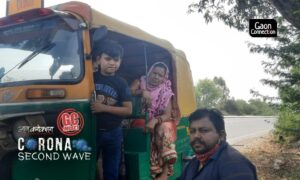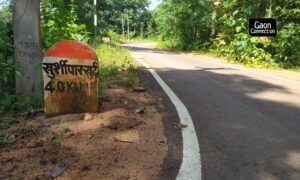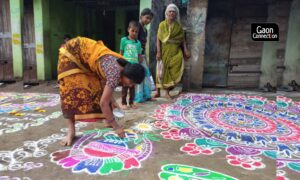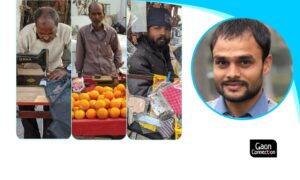“I keep telling people that there is no corona. It is nothing big. The more you say the more you would think about it. There are chances that post lockdown, hundreds may come out depressed. We talk to people and try to spread positivity and khushiyan,” said Chinu Kwatra, founder Khushiyan and Roti Ghar, Mumbai-based non-profit organisations that are providing cooked meals and dry ration to over 7,000 below poverty poor including, rag pickers, slum dwellers, security guards in Mumbai’s slum areas daily.
“We started distributing food packets to security guards. But then, we started requesting people of their societies to arrange food for these guards so that we could help other sections that need urgent help,” said Chinu, adding, “We would see transgenders, who used to beg on signals for food and money. But they would get help from nowhere. Similarly, there are sex workers in Mulund-Bhandup area in Mumbai. Like others, they also need help.”
“On March 25, when lockdown was announced, Ms Priyanka Chaturvedi, (Member of Parliament, Rajya Sabha from Maharashtra) asked us if we could expand our help to migrant labourers and slum dwellers in the city. She helped us in raising funds. Thereafter, we started providing food packets to around 1,000 people per day, and sooner we managed to provide food packets to around 7,000 people daily,” said Chinu. The organisation has also expanded its help in Bengaluru, Hyderabad, and in Odisha.
“During the first 10 days of the 21-day lockdown, we distributed food packets but now along with that we are distributing ration kits to the people in slums. This reduces our traveling, and this is how we are able to focus on areas that remain devoid of help,” said Chinu, who managed to provide help directly to over 80,000 people in Mumbai since the lockdown.
Besides giving lunch packets, the organisation started providing dry ration from April 3. The kit comprises nine food items — rice, wheat, kaboli chana, tur dal, salt, spices, oil, tea leaves and sugar. The kit weighs 17-18kgs. It provides for a seven-day ration for a family of seven. They make sure that the needy get a balanced diet.
“Through a common Whatsapp group, we are connected with the COVID 19 control room and Mr Aditya Thackrey, there we ensure the duplication of food,” said Chinu.
Reaching where others aren’t
Along with eight volunteers, Chinu Kwatra, distributes cooked meal and dry ration to the people in remote and inaccessible areas in the city.
The-seven-member kitchen staff starts cooking by 4 in the morning so that the volunteers could take food to the poor and they could have their first meal of the day.
“We assure people that we would give them food regularly, at least till the lockdown. They now know that we would come taking food packets for them,” said Chinu.
“Many people are providing help in the western belt of Mumbai, in Bandra and in the Eastern expressway. But there are areas like, Punwhale, Titwala, Ulhasnagar, Uran, Chunchuti, and a few areas in Navi Mumbai, which are home to many tribals. They also needed help,” informed Chinu, who is working for the welfare of people in slums for the past six years.
“Condition are worse in the tribal belt. During this lockdown, we visited places inside the Dharavi (one of the largest slum areas in the world), Thane, Kasheli. These are the places where adivasis live in tat patri (homes made of tarpaulin sheets),” said Chinu.
“For these people, corona is a just a flu. They say that they managed to escape diseases like Malaria and Dengue, then how could this cold-cough disease do any wrong to them,” said Chinu, adding, “Slum areas which get the provision of getting into the news, only they know about the consequences of the disease.”
“The Mumbai police has been very supportive throughout. They have managed to help people whom no others could. One such place is Kasheli slums. Also, they keep advising people that if someone comes to give them food then how do they have to stand and practice social distancing. Nowadays, people in slums stand in queues, even in Dharavi, people are not fighting for food now,” said Chinu.
“There are many areas that have been sealed, including Worli and Govandi. We give dry ration to Brihanmumbai Municipal Corporation (BMC), and they give kits to the needy. Similarly, for the areas that would be sealed, we would take help of BMC and this is how a channel would develop,” said Chinu.
Talking about the health risks of stepping out amid lockdown, Chinu said: “Besides me, the health of our volunteers who remain out for 18-19 hours remains at risk. We have to take utmost precautions so that we are able to run throughout,” said Chinu.



















